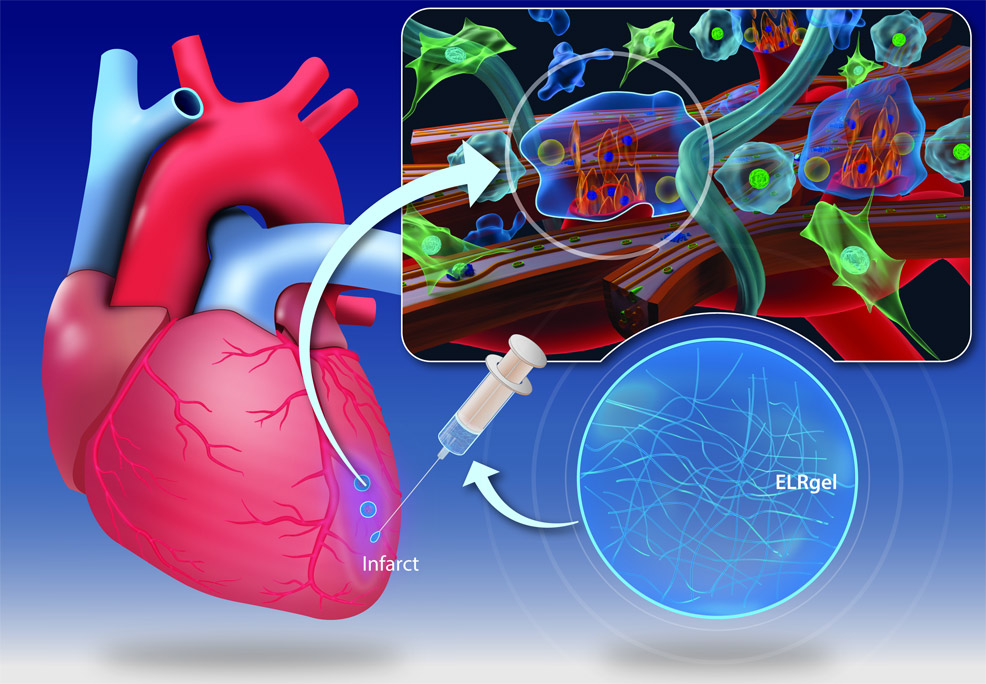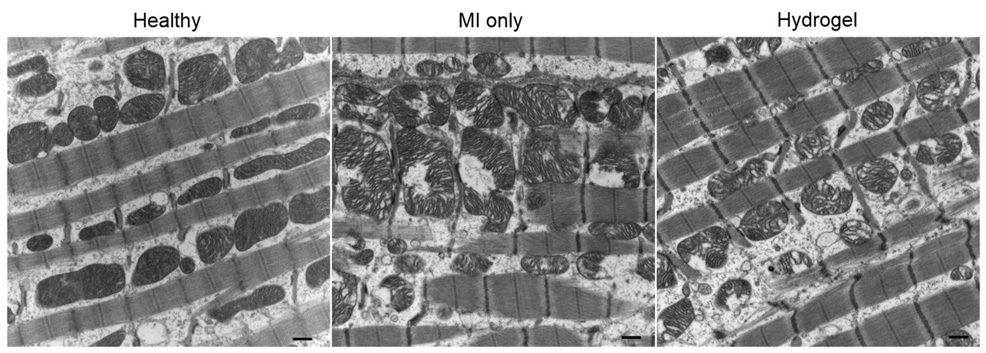
1st March 2021 Hydrogel could repair heart attack damage Researchers have developed an injectable hydrogel that could help repair and prevent further damage to the heart muscle after a heart attack.
Myocardial infarction or heart disease is a leading cause of death due to the irreversible damage caused to the heart muscle (cardiac tissue) during a heart attack. The natural regeneration of cardiac tissue is minimal, so the damage cannot heal by itself. Current treatments lack an effective method to prevent death and subsequent cardiac tissue repair following a heart attack. "This project involved the development and testing of an elastin-based hydrogel derived from a naturally occurring biomaterial in the human body," explains Professor Abhay Pandit, Scientific Director of CÚRAM, a national science centre co-funded by the Irish Government and the European Union. Professor Pandit and his team worked with researchers from BIOFORGE Lab at the University of Valladolid in Spain. The hydrogel is based on a family of unique biomaterials called elastin-like recombinamers, that BIOFORGE had developed in the search for advanced hydrogels for regenerative medicine. "The hydrogel was developed to mimic the environment around the heart following an infarction and then customised to have the ability to protect and promote regeneration of the cardiac tissue," explains Professor Pandit. Using sheep, the team assessed therapeutic effects of multiple injections of this hydrogel into cardiac tissue during the first-ever preclinical study of its kind – demonstrating its efficacy for cardiac tissue remodelling following a myocardial infarction (MI). They found that hydrogel injections into heart muscle resulted in less fibrosis (scarring of the cardiac tissue) and an increase in the generation of new blood vessels in the area. They were also able to observe the rise in the preservation and survival of cardiomyocytes, a type of cell that allows the heart to beat, in the affected area.
"This project demonstrates the efficacy of a unique biomaterial-only system able to induce a positive healing effect on cardiac tissue following a heart attack event," added Professor Pandit. "The functional benefits obtained by the timely injection of the hydrogel supports and highlights the potential use of this treatment in the clinic. The next step will be to develop a prototype for a delivery system for the hydrogel." "In this study, we employed a model to specifically look at a type of heart attack that has increased in incidence and is not often treated until the acute phase resolves," said Professor Mark Da Costa, Cardiothoracic Surgeon and senior co-author of the study. "Scar tissue that forms after the heart attack often remodels negatively, causing future problems like heart failure. The timely injection of this hydrogel appears to change the way the heart muscle heals after a heart attack. There is a significant positive histological, biological and functional recovery of the injured heart muscle. Work is progressing now to deliver this to the sites of injury in different clinical settings and will be followed with translation into a clinical trial." This new study by CÚRAM and BIOFORGE appears in the journal Science Translational Medicine.
Comments »
If you enjoyed this article, please consider sharing it:
|








